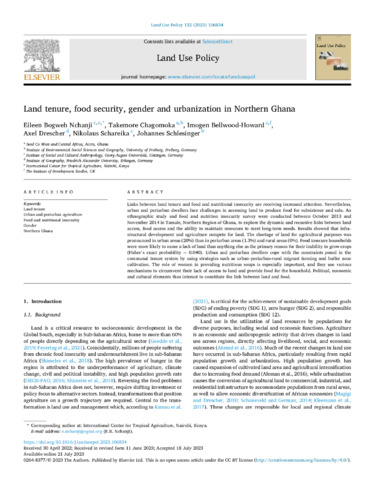Land tenure, food security, gender and urbanization in Northern Ghana
Abstract
Links between land tenure and food and nutritional insecurity are receiving increased attention. Nevertheless, urban and periurban dwellers face challenges in accessing land to produce food for subsistence and sale. An ethnographic study and food and nutrition insecurity survey were conducted between October 2013 and November 2014 in Tamale, Northern Region of Ghana, to explore the dynamic and recursive links between land access, food access and the ability to maintain resources to meet long-term needs. Results showed that infrastructural development and agriculture compete for land. The shortage of land for agricultural purposes was pronounced in urban areas (20%) than in periurban areas (1.3%) and rural areas (0%). Food insecure households were more likely to name a lack of land than anything else as the primary reason for their inability to grow crops (Fisher’s exact probability = 0.040). Urban and periurban dwellers cope with the constraints posed in the communal tenure system by using strategies such as urban–periurban-rural migrant farming and buffer zone cultivation. The role of women in providing nutritious soups is especially important, and they use various mechanisms to circumvent their lack of access to land and provide food for the household. Political, economic and cultural elements thus interact to constitute the link between land and food.

